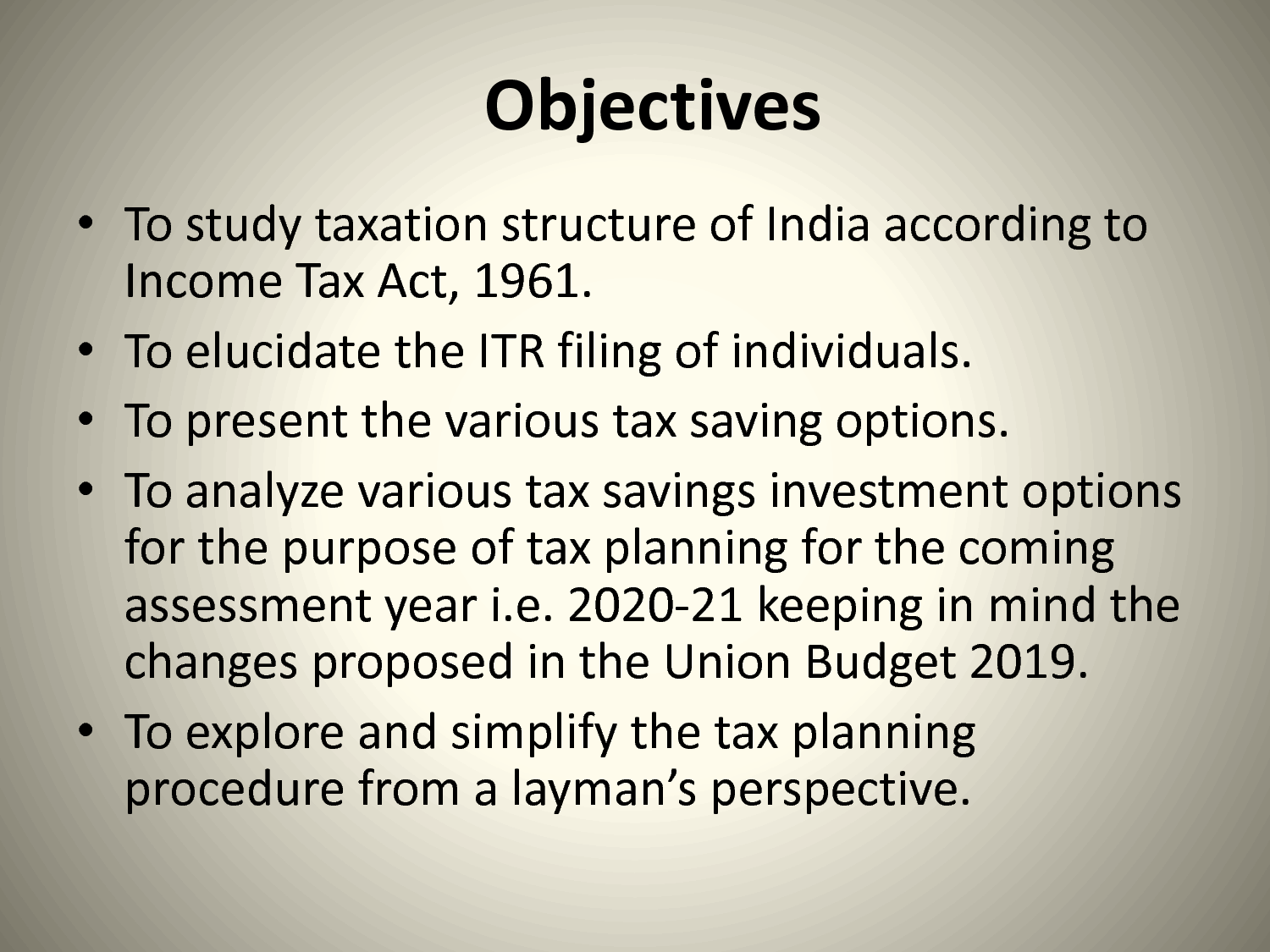Home>Finance>What Is The Purpose Of Goal Setting In The Financial Planning Process


Finance
What Is The Purpose Of Goal Setting In The Financial Planning Process
Published: November 2, 2023
Learn about the significance of goal setting in finance and how it plays a vital role in the financial planning process. Achieve your financial aspirations by setting clear and measurable goals.
(Many of the links in this article redirect to a specific reviewed product. Your purchase of these products through affiliate links helps to generate commission for LiveWell, at no extra cost. Learn more)
Table of Contents
- Introduction
- Definition of Goal Setting in Financial Planning
- Importance of Goal Setting in Financial Planning
- Benefits of Goal Setting in Financial Planning
- Process of Goal Setting in Financial Planning
- Common Challenges in Goal Setting for Financial Planning
- Strategies to Overcome Goal Setting Challenges in Financial Planning
- Conclusion
Introduction
Goal setting is a crucial aspect of financial planning that helps individuals and businesses in achieving desired outcomes and milestones. It involves the process of defining specific objectives, both short-term and long-term, and creating a roadmap to reach them. In the realm of financial planning, goal setting is a fundamental step that lays the foundation for effective decision making, resource allocation, and financial management.
Financial planning encompasses various areas such as budgeting, saving, investing, and debt management. Without clear goals in place, these activities can lack direction and purpose, making it difficult to make informed financial choices. Whether it’s planning for retirement, buying a home, funding a child’s education, or growing a business, goal setting ensures that individuals and businesses have a clear vision of what they want to achieve financially.
Goal setting in financial planning goes beyond just stating financial targets. It involves setting specific, measurable, achievable, relevant, and time-bound (SMART) goals that serve as a roadmap to financial success. SMART goals provide clarity and help individuals and businesses stay focused and motivated on their financial journey.
Effective goal setting also takes into consideration an individual’s or business’s values, interests, and risk tolerance. It aligns financial aspirations with personal or organizational values, ensuring that the goals are meaningful and in line with one’s overall vision for financial well-being.
Throughout the financial planning process, goal setting serves as a guiding principle that drives decision making and resource allocation. It helps individuals and businesses prioritize their financial activities and make choices that support their long-term objectives. Without clear goals, it’s easy to get sidetracked, lose focus, and miss out on potential opportunities for growth and financial security.
In the following sections, we will explore the importance of goal setting in financial planning, the benefits it offers, the process involved, common challenges that individuals and businesses face, and strategies to overcome these challenges. By understanding the purpose and significance of goal setting, you can enhance your financial planning journey and increase the likelihood of achieving your desired financial outcomes.
Definition of Goal Setting in Financial Planning
Goal setting in financial planning refers to the process of identifying and establishing specific financial objectives that individuals or businesses aim to achieve within a given timeframe. It involves setting clear and measurable targets that provide direction and purpose to financial decision-making and resource allocation.
Financial goals can encompass a wide range of objectives, including saving for retirement, purchasing a home, paying off debt, funding education, starting a business, or building an emergency fund. These goals may vary in terms of importance, urgency, and timeframe, but they all require careful planning and strategic execution.
When setting financial goals, it is crucial to create goals that are specific, measurable, achievable, relevant, and time-bound (SMART). Specific goals provide clarity and focus, allowing individuals or businesses to define the exact outcome they desire. Measurable goals enable tracking progress and determining whether the goal has been achieved. Achievable goals are within reach and consider factors like income, resources, and time availability. Relevant goals align with personal or organizational values and contribute to long-term financial well-being. Lastly, time-bound goals have a specific deadline or timeframe for completion.
Goal setting in financial planning serves as a roadmap to guide financial decisions and actions. It helps individuals and businesses prioritize their financial activities and allocate resources effectively. By setting clear goals, individuals and businesses can stay motivated and focused on their desired outcomes.
Furthermore, goal setting in financial planning supports proactive financial management. It allows individuals or businesses to anticipate potential obstacles and make necessary adjustments along the way. Regularly reviewing and reassessing goals enables individuals or businesses to adapt to changing circumstances and seize opportunities for growth and financial success.
In summary, goal setting in financial planning involves defining specific financial objectives that are measurable, achievable, relevant, and time-bound. It provides direction and purpose to financial decision-making and resource allocation. By setting clear goals, individuals and businesses can enhance their financial planning journey and increase the likelihood of achieving desired financial outcomes.
Importance of Goal Setting in Financial Planning
Goal setting plays a crucial role in financial planning as it provides a framework for individuals and businesses to effectively manage their finances and work towards achieving desired outcomes. Here are some key reasons why goal setting is important in financial planning:
- Provides Clarity and Direction: Setting clear financial goals helps individuals and businesses gain clarity on what they want to achieve. It gives them a sense of direction and purpose in their financial journey, guiding their decision-making and resource allocation.
- Enhances Motivation and Focus: Having clearly defined goals keeps individuals and businesses motivated to take necessary actions and make financial decisions that align with their objectives. Goals provide a long-term vision and short-term milestones to work towards, keeping them focused on the bigger picture.
- Aids in Decision Making: When faced with financial choices, having established goals makes decision-making easier. Goals act as a benchmark against which individuals and businesses can evaluate options and determine the best course of action that aligns with their objectives.
- Facilitates Resource Allocation: Financial goals help individuals and businesses allocate their resources effectively. By knowing their priorities and objectives, they can allocate their income, savings, and investments in a way that supports the achievement of their goals.
- Enables Measurement of Progress: Setting specific and measurable goals allows individuals and businesses to track their progress and evaluate how well they are doing. It provides a tangible way to measure success and identify areas that may need adjustments or improvements.
- Supports Long-Term Financial Stability: Goal setting promotes long-term financial stability by encouraging individuals and businesses to adopt a strategic approach to managing their finances. It helps them identify potential risks, plan for emergencies, and build a strong financial foundation for the future.
Overall, goal setting is crucial in financial planning as it provides a roadmap for individuals and businesses to navigate their financial journey. It enhances motivation, clarity, and focus, aids in decision-making, enables efficient resource allocation, and promotes long-term financial stability. By setting clear goals, individuals and businesses can effectively manage their finances and work towards achieving their desired financial outcomes.
Benefits of Goal Setting in Financial Planning
Goal setting in financial planning offers numerous benefits for individuals and businesses. By setting clear and specific financial objectives, you can enhance your financial well-being and work towards achieving your desired outcomes. Here are some key benefits of goal setting in financial planning:
- Focus and Direction: Setting financial goals provides a clear focus and direction on what you want to achieve. It helps you prioritize your financial activities and make informed decisions that align with your objectives. This focus enables you to stay on track and avoid unnecessary spending or investment mistakes.
- Motivation and Accountability: Having specific financial goals gives you motivation to work towards them. It provides a sense of purpose and accomplishment as you make progress towards achieving each goal. Additionally, setting goals holds you accountable for your financial actions and encourages you to stay disciplined and consistent in your efforts.
- Planning and Strategy: Goal setting in financial planning requires careful planning and strategy. It forces you to assess your current financial situation and identify the steps needed to reach your desired outcomes. This planning process allows you to anticipate potential roadblocks and make necessary adjustments along the way, increasing the likelihood of success.
- Measurement of Progress: Setting specific and measurable financial goals enables you to track your progress. You can easily assess how far you have come and identify areas that may require additional attention. This measurement of progress provides valuable feedback and allows you to make necessary course corrections to ensure you stay on the path towards achieving your goals.
- Financial Discipline: Goal setting encourages financial discipline by emphasizing the importance of budgeting, saving, and avoiding unnecessary debt. It helps you develop healthy financial habits and make conscious choices that support your long-term objectives. By adhering to your goals, you cultivate discipline and increase your chances of achieving financial stability.
- Financial Security and Peace of Mind: Establishing financial goals promotes long-term financial security and peace of mind. By setting goals related to emergency funds, debt reduction, retirement planning, and insurance coverage, you can protect yourself and your loved ones from unforeseen circumstances. This sense of security allows you to focus on other aspects of your life with greater peace of mind.
- Celebration of Achievements: Goal setting provides a framework to celebrate your financial achievements along the way. As you accomplish each milestone or reach a specific target, you can take the time to acknowledge your progress and reward yourself for your hard work. These celebrations serve as motivators to keep pushing forward and maintain momentum towards your larger financial goals.
Overall, goal setting in financial planning brings focus, motivation, and accountability to your financial journey. It enables effective planning and strategy, provides a means to measure progress, cultivates financial discipline, and promotes long-term security and peace of mind. By reaping these benefits, you can take control of your finances and work towards building a stable and prosperous financial future.
Process of Goal Setting in Financial Planning
The process of goal setting in financial planning involves several steps that help individuals and businesses define their objectives and create a roadmap to achieve them. While the exact process may vary depending on individual circumstances, here are some key steps to consider when setting financial goals:
- Self-Reflection and Assessment: Begin by reflecting on your current financial situation and identifying your values, priorities, and aspirations. Consider your long-term goals, such as retirement, education, or homeownership, and determine what is most important to you. Assess your income, expenses, assets, and debts to understand your financial standing.
- Create SMART Goals: Once you have a clear understanding of your financial situation and aspirations, it’s time to create SMART goals. Make sure your goals are Specific, Measurable, Achievable, Relevant, and Time-bound. For example, rather than setting a vague goal of “saving money,” refine it to “save $10,000 for a down payment on a house within the next three years.”
- Prioritize Your Goals: It’s important to prioritize your financial goals based on their importance and urgency. Rank them in order of significance and consider the timeline for achieving each goal. This prioritization will guide your financial planning efforts and resource allocation.
- Break Down Goals: Break down your larger goals into smaller, manageable milestones or targets. This allows you to track progress and stay motivated along the way. For example, if your long-term goal is to save $50,000 for retirement, you could set interim goals of saving $10,000 per year for the next five years.
- Create an Action Plan: Develop an action plan outlining the specific steps you need to take to reach each goal. Determine the financial strategies, such as budgeting, saving, investing, or debt repayment, that will help you achieve your objectives. Identify any additional resources, support, or professional advice you may need to implement your plan successfully.
- Monitor and Review: Regularly monitor your progress towards each goal and review your financial plan. Assess if you are on track, make adjustments as needed, and celebrate milestones along the way. Consider any changes in your circumstances or external factors that may impact your goals and modify your plan accordingly.
- Seek Professional Advice: If you’re unsure about the financial planning process or need guidance, consider seeking advice from a financial planner or advisor. They can provide expertise and help you navigate complex financial decisions, ensuring that your goals are realistic, achievable, and aligned with your overall financial objectives.
Remember, goal setting in financial planning is an ongoing process. As your circumstances change or new opportunities arise, it may be necessary to revise your goals and adjust your financial plan accordingly. By following a systematic approach to goal setting and regularly reviewing and updating your goals, you can stay on track towards achieving your desired financial outcomes.
Common Challenges in Goal Setting for Financial Planning
While goal setting is a critical part of the financial planning process, it is not without its challenges. Understanding and addressing these challenges can help individuals and businesses overcome obstacles and set achievable financial goals. Here are some common challenges in goal setting for financial planning:
- Lack of Clarity: One of the main challenges individuals and businesses face is a lack of clarity about their financial goals. Unclear or vague goals make it difficult to create a focused and actionable plan. It’s essential to define specific and measurable goals to ensure a clear direction for your financial journey.
- Unrealistic Expectations: Setting overly ambitious or unrealistic goals can lead to frustration and disappointment. It’s important to set goals that are attainable and aligned with your current financial situation. Assessing your resources, income, and timeframe will help you set realistic expectations and avoid unnecessary stress.
- Conflicting Priorities: Balancing multiple financial goals can be challenging, especially when competing priorities arise. It can be difficult to decide which goals to prioritize or how to allocate limited resources. Taking the time to evaluate the importance and urgency of each goal can help you establish a clear order of precedence.
- Procrastination: Procrastination is a common hurdle in goal setting for financial planning. Delaying action or failing to establish a timeline can hinder progress towards achieving goals. Overcoming procrastination requires self-discipline, organization, and a proactive mindset. Breaking down goals into smaller tasks and setting deadlines can help overcome this challenge.
- Lack of Financial Knowledge: Limited financial knowledge can be a significant obstacle, particularly in understanding investment options, tax implications, or retirement planning. This challenge can be overcome by seeking financial education through books, online resources, or consulting with a financial advisor. Empowering yourself with knowledge will enable you to make informed decisions and set realistic goals.
- External Factors: External factors such as economic downturns, unexpected expenses, or changes in personal circumstances can affect goal setting. These factors can disrupt your progress and make it challenging to stay on track. It is important to remain flexible and adaptable, adjusting your goals and strategies as necessary in response to external circumstances.
- Lack of Accountability: Holding yourself accountable to your financial goals can be difficult without a support system or external accountability measures. Creating a support network, sharing your goals with trusted individuals, or partnering with a financial advisor can help provide the necessary accountability and encouragement to stick to your goals.
By acknowledging and addressing these common challenges, you can better navigate the goal-setting process in financial planning. Approaching these challenges with proactive solutions and seeking support when needed will help you overcome obstacles and stay on track towards achieving your desired financial outcomes.
Strategies to Overcome Goal Setting Challenges in Financial Planning
While setting financial goals can present various challenges, there are strategies individuals and businesses can employ to overcome these obstacles and achieve success. Here are some effective strategies to overcome goal setting challenges in financial planning:
- Gain Clarity through Self-Reflection: Take the time to reflect on your values, aspirations, and financial priorities. Analyze your current financial situation and identify specific goals that align with your values. This self-reflection will provide clarity and guide you in setting meaningful and achievable goals.
- Break Goals into Smaller Steps: Overcome the challenge of overwhelming goals by breaking them down into smaller, manageable steps. This approach allows you to focus on incremental progress and celebrate achievements along the way, keeping you motivated and engaged.
- Seek Professional Guidance: If you feel overwhelmed or lack financial knowledge, consider working with a financial advisor or planner. They can guide you through the goal-setting process, provide expertise, and help you develop a realistic and actionable financial plan.
- Create a Detailed Action Plan: Develop a comprehensive action plan that outlines specific steps and timelines to achieve each goal. This plan serves as a roadmap and provides a structured approach to your financial goals. Regularly review and adjust the action plan to stay on track.
- Stay Accountable: Establish accountability measures to ensure you stay committed to your goals. Share your goals with a trusted friend, family member, or mentor who can provide support and hold you accountable. Consider joining a financial support group or seeking a financial accountability partner.
- Stay Flexible and Adapt: Be prepared to adapt your goals and strategies as circumstances change. Unexpected events or external factors may require adjustments to your financial plan. Stay flexible and embrace the necessary changes to ensure your goals remain relevant and attainable.
- Stay Motivated: Maintain motivation by reminding yourself of the reasons behind your goals. Visualize the benefits and rewards of achieving your goals. Set milestones and celebrate each achievement, no matter how small. Stay focused on the positive impact your financial goals will have on your life.
- Continuous Learning and Improvement: Enhance your financial knowledge and skills through continuous learning. Read books, attend seminars or workshops, and follow reputable financial resources. Investing in your financial education equips you with the tools and knowledge necessary to overcome challenges and make informed decisions.
- Review and Adjust Regularly: Regularly review and assess your progress towards your goals. Evaluate your financial plan, make adjustments where needed, and stay committed to your long-term vision. Monitor your achievements, address setbacks, and make necessary course corrections along the way.
By implementing these strategies, you can overcome goal setting challenges in financial planning and set yourself up for success. Remember, perseverance, flexibility, and a proactive mindset are key to achieving your financial goals.
Conclusion
Goal setting is a crucial component of financial planning that provides individuals and businesses with direction, focus, and a roadmap to achieve their desired financial outcomes. By setting specific, measurable, achievable, relevant, and time-bound (SMART) goals, individuals and businesses can clarify their objectives and make informed financial decisions.
Throughout the goal-setting process, individuals and businesses may face common challenges, such as lack of clarity, unrealistic expectations, conflicting priorities, procrastination, limited financial knowledge, external factors, and lack of accountability. However, with the right strategies, these challenges can be overcome.
Strategies to overcome goal-setting challenges include gaining clarity through self-reflection, breaking goals into smaller steps, seeking professional guidance, creating detailed action plans, staying accountable, remaining flexible, staying motivated, continuous learning, and regularly reviewing and adjusting goals.
It is important to remember that goal setting in financial planning is an ongoing process. Goals may need to be adjusted as circumstances change, and continuous monitoring and review are essential. With perseverance, adaptability, and a proactive mindset, individuals and businesses can overcome challenges and work towards achieving their financial goals.
By setting clear and meaningful financial goals, individuals and businesses can enhance their financial well-being, make effective financial decisions, and build a solid foundation for long-term financial success.
In conclusion, goal setting serves as a guiding principle in the financial planning process. It provides clarity, motivation, accountability, and a roadmap for individuals and businesses to achieve their financial objectives. Through thoughtful goal setting and proactive strategies, individuals and businesses can optimize their financial planning efforts and increase their chances of realizing their desired financial outcomes.














